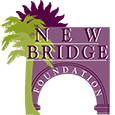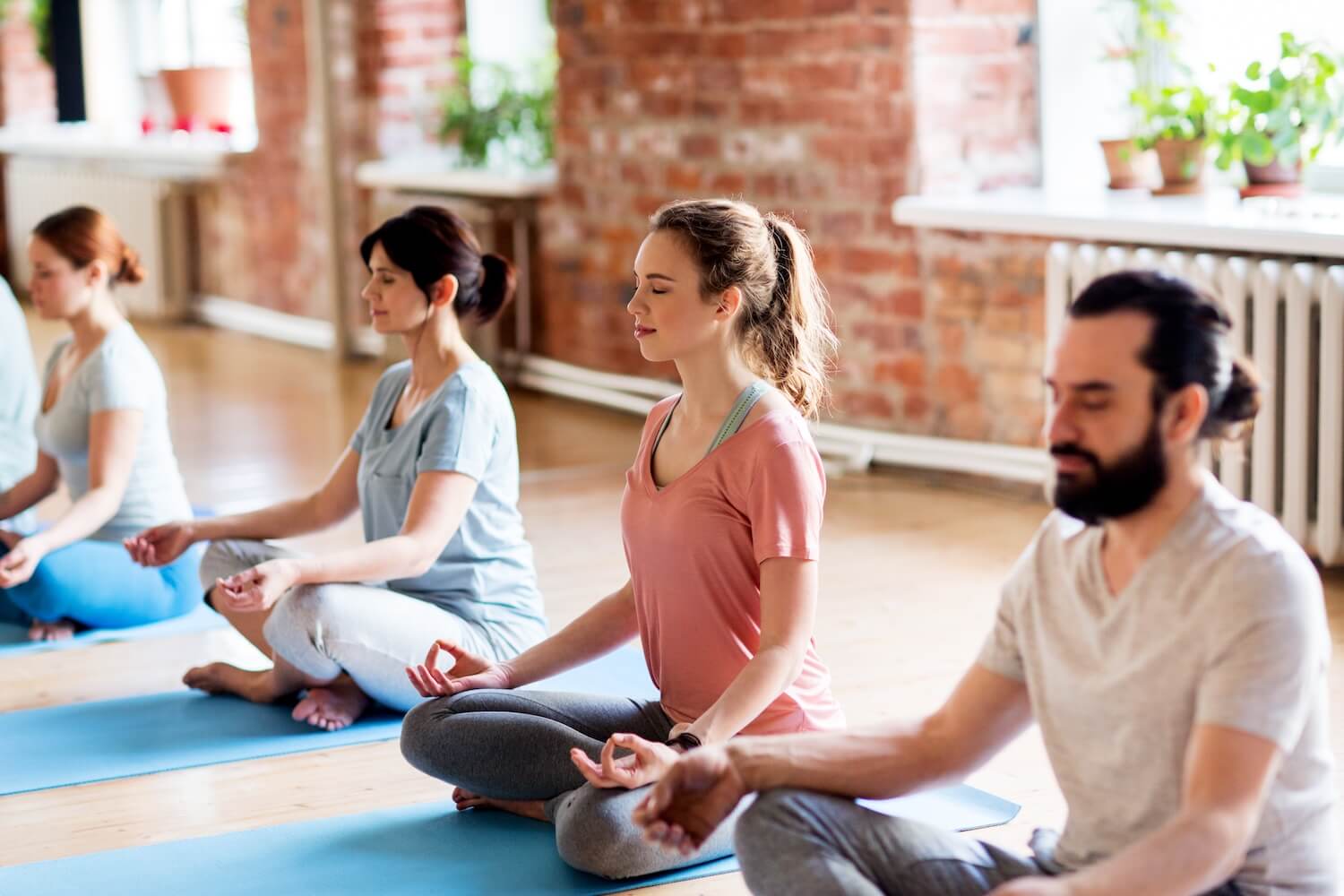Recovery involves restoring balance to the mind and body. At New Bridge Foundation® in Berkeley, California, our programs combine counseling with holistic approaches that support physical and emotional healing.
Our short-term and long-term residential rehab programs integrates practices such as yoga, nutrition, and art therapy to help participants reconnect with themselves, build healthy habits, and move forward in recovery with confidence.
What is residential rehab at New Bridge Foundation®?
Definition of residential rehab
Residential rehab is a structured program where participants live on-site while receiving daily counseling, wellness education, and therapeutic support. This immersive setting offers 24-hour care, helping people focus completely on their recovery without outside distractions or triggers.
Why a comprehensive approach matters for recovery
Substance use affects every part of a person’s life—physical health, emotions, and relationships. A program that addresses all of these areas creates the best chance for lasting recovery.
By combining evidence-based counseling with holistic practices, our team helps participants reduce stress, strengthen coping skills, and restore overall well-being.
The role of holistic approaches in addiction recovery
Complementing evidence-based treatments
Holistic approaches work side by side with proven methods such as cognitive behavioral therapy (CBT), group counseling, and relapse prevention planning. Together, these approaches support emotional healing, physical recovery, and personal growth.
Holistic practices create balance within the recovery process and help participants develop a routine that supports both mind and body.
Addressing the whole person: body, mind, and spirit
Healing requires attention to all aspects of health. Yoga, nutrition, and art therapy encourage emotional expression, mindfulness, and physical strength—key elements for maintaining sobriety and improving quality of life.
Yoga in residential rehab
Benefits of yoga for reducing stress and cravings
Yoga helps calm the nervous system, reduce stress hormones, and support mental focus. In residential rehab, it provides an outlet for managing tension and emotional distress.
Regular practice can help participants:
- Lower anxiety and irritability
- Manage cravings
- Improve focus and self-control
- Build self-awareness and patience
These skills make it easier to navigate daily challenges in recovery.
Mind-body connection in healing
Addiction often causes disconnection from the body. Yoga helps participants rebuild awareness of how their emotions, thoughts, and physical sensations are linked. This awareness supports relapse prevention and self-regulation.
As participants become more comfortable in their bodies, they also regain trust in their ability to manage stress and discomfort without substances.
How New Bridge incorporates yoga into treatment
At New Bridge Foundation®, yoga is part of our regular residential rehab schedule. Certified instructors guide sessions designed for all experience levels, focusing on breathing, mindfulness, and relaxation.
Each class helps participants develop calmness, focus, and a sense of control that supports the recovery process.
Nutrition in residential rehab
Importance of balanced nutrition during recovery
Substance use can deplete nutrients and disrupt normal eating habits. Rebuilding the body’s strength through healthy eating supports energy, focus, and mood stability.
Proper nutrition also helps regulate sleep and hormone balance—both of which are essential for emotional health.
Rebuilding health after substance use
Nutrient-rich meals help repair tissue, strengthen the immune system, and support the brain’s natural production of dopamine and serotonin. These chemicals play an important role in emotional balance and overall recovery.
By eating well, participants regain strength and mental clarity, making it easier to participate in counseling and daily treatment activities.
Meal planning and education at New Bridge Foundation®
Our residential rehab in Berkeley, CA offers balanced meals designed to nourish and restore the body. Participants also learn about nutrition through educational sessions that teach how food supports mental and physical wellness.
Topics include:
- Planning balanced meals
- Staying hydrated and maintaining energy
- Understanding the connection between nutrition and mood
This education helps participants carry healthy habits forward after treatment.
Art therapy in residential rehab
Expressing emotions through creative outlets
Art therapy provides a safe space for exploring emotions and experiences. Creating art allows people to process thoughts and feelings that may be difficult to express verbally.
Through painting, drawing, or writing, participants gain new insight into their emotions and begin to build self-acceptance and confidence.
Reducing anxiety and improving self-awareness
Creative activities have a calming effect. Art therapy encourages mindfulness and helps people stay focused on the present moment rather than past regrets or future worries.
In residential rehab, this practice can reduce anxiety, promote emotional release, and deepen self-understanding.
Examples of art therapy sessions offered at New Bridge
Art therapy at New Bridge Foundation® may include painting, journaling, collage, and other guided activities. Facilitators encourage reflection and discussion, helping participants explore personal themes and growth through creative expression.
Additional holistic methods that support recovery
Meditation and mindfulness
Meditation teaches participants to slow down, observe thoughts without judgment, and manage emotions more effectively. Mindfulness training complements therapy by improving focus and reducing stress.
Recreational therapy and physical activity
Exercise promotes both physical health and emotional stability. Activities like walking, stretching, and recreational sports improve mood and help rebuild confidence.
These activities encourage balance between physical wellness and emotional healing.
Peer support and community involvement
Group counseling and peer connection are vital parts of recovery. Sharing experiences builds trust, accountability, and hope.
Community-based activities and alumni programs keep participants engaged and supported even after residential care ends.
Why choose holistic residential rehab in Northern California
Integration of clinical care with holistic methods
New Bridge Foundation® blends evidence-based addiction treatment with holistic approaches for complete, well-rounded care. This approach addresses physical recovery, emotional healing, and personal growth.
Our programs focus on helping participants build resilience, manage stress, and create healthy routines that last long after treatment.
Local credibility and Bay Area community
As part of the Bay Area recovery community, New Bridge Foundation® serves participants from Berkeley, Oakland, San Francisco, and surrounding cities. Our location makes it easy for families to stay involved and for participants to stay connected with local support networks during and after treatment.
Over 55 years of trusted treatment at New Bridge Foundation®
For more than five decades, New Bridge Foundation® has provided Northern California addiction treatment that combines compassion and clinical excellence.
Recognized by Newsweek as one of America’s “Best Addiction Treatment Centers” for six consecutive years, we continue to offer trusted care for people seeking lasting recovery.
Start your recovery journey with New Bridge
Admissions process and insurance support
Our admissions team helps each person get started with a free assessment, insurance verification, and program recommendations. Whether you need short-term care or long-term addiction treatment, we’ll guide you every step of the way.
How to connect with New Bridge Foundation® today
Healing begins with connection. Call New Bridge Foundation® today at 866.772.8491 to learn more about our residential rehab in Berkeley, CA and how holistic approaches like yoga, nutrition, and art can support your recovery.
FAQ
What does “holistic” mean in residential rehab?
Holistic rehab supports healing of the mind, body, and spirit through therapies like yoga, nutrition, and art alongside counseling and medical care.
How does yoga help in addiction recovery?
Yoga reduces stress, improves focus, and helps people manage cravings and emotions in healthy ways.
Why is nutrition important in rehab?
Good nutrition restores energy, improves mood, and supports the body’s recovery after substance use.
Is art therapy effective in addiction treatment?
Yes. Art therapy helps people express emotions, reduce anxiety, and increase self-awareness during the healing process.








